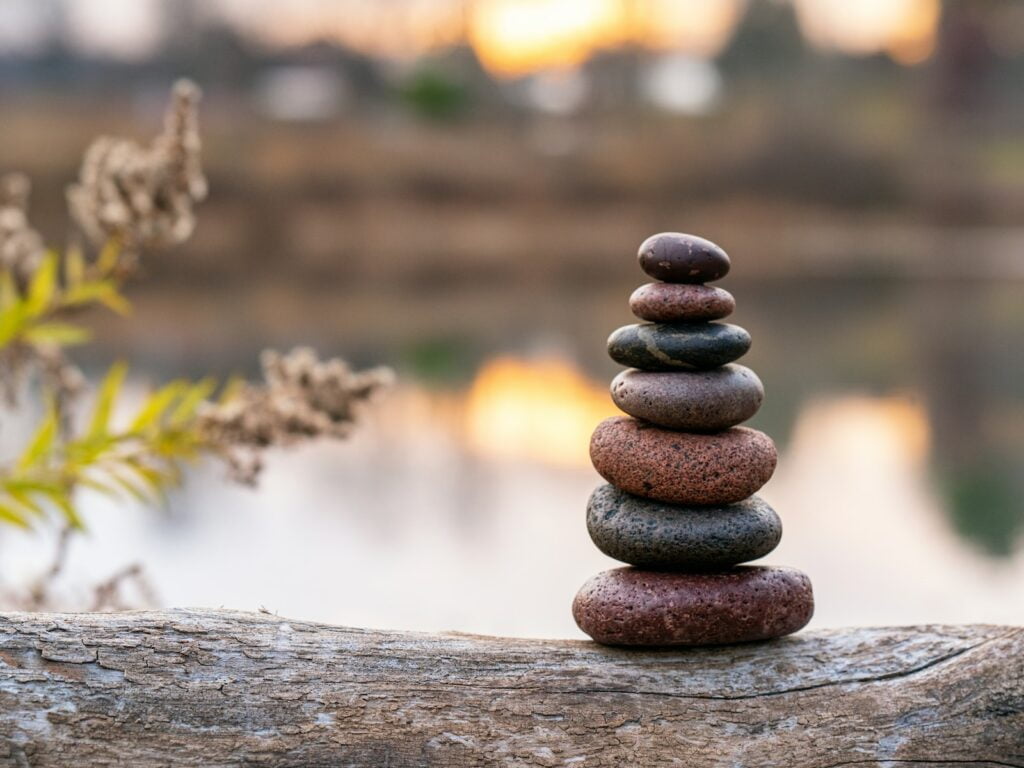Finding Your Zen: Simple Practices for Inner Peace and Mental Clarity

Are you feeling overwhelmed, stressed, or anxious? It’s time to find your zen, your sanctuary for inner peace and mental clarity. It’s easy to feel overwhelmed by the constant demands of life. The pressures of work, relationships, and daily responsibilities can leave us feeling stressed, anxious, and exhausted. It’s no surprise that poor mental health is becoming increasingly common, with nearly one in five adults in the US experiencing a mental illness each year.
Fortunately, there is a growing interest in self-awareness and mindfulness practices that can help us find inner peace and mental clarity. One such practice is finding your Zen. By incorporating Zen practices into your daily routine, you can learn how to quiet your mind, reduce stress and anxiety, and cultivate a sense of inner peace. Finding inner peace and mental clarity doesn’t have to be complicated or time-consuming. By incorporating a few simple practices into your daily routine, you can create a calm and focused mind.
In this article, we’ll explore the benefits of finding your Zen and how inner peace and mental clarity could help you in every day life. From reducing stress and anxiety to promoting feelings of happiness and well-being, whether you’re new to mindfulness practices or a seasoned practitioner, read on remember to write back to us about your Zen.

Table of Contents
What is Zen- a brief history
Zen, also known as Chan in Chinese, has a rich history that dates back to the 5th century. It is said to have been founded by an Indian monk named Bodhidharma, who traveled to China to spread the teachings of Buddhism.
Bodhidharma is said to have arrived in China in the 5th century and taught at the Shaolin Monastery. He emphasized the practice of meditation, which he believed was the key to achieving enlightenment. Bodhidharma’s teachings were later developed by his followers, and Zen Buddhism became a distinct school of Buddhism.
In the 12th century, Zen Buddhism was brought to Japan by a monk named Eisai. He introduced a new form of Zen known as Rinzai, which emphasized the use of koans, or riddles, to achieve enlightenment. Another form of Zen, Soto, was introduced to Japan by another monk named Dogen.
Over time, Zen Buddhism became popular in Japan and spread to other parts of the world. Today, Zen is practiced in many countries and has become a significant influence in art, literature, and philosophy. Zen emphasises the practice of meditation to achieve inner peace, mindfulness, and enlightenment. Zen is not a religion, but rather a way of life that can be practiced by anyone.

Zen impacts your inner peace and mental clarity
Finding your Zen can have a multitude of benefits for your overall well-being. Incorporating Zen practices into your daily routine can help you reduce stress and anxiety, increase focus and concentration, improve sleep quality, boost immune system function, enhance emotional regulation, and promote feelings of happiness and well-being.
One of the most notable benefits of Zen practice is its ability to reduce stress and anxiety. With the fast-paced nature of modern life, many people find it challenging to manage their stress levels effectively. By practicing Zen meditation, you can learn how to quiet your mind and focus on the present moment, reducing stress and anxiety in the process.
Another benefit of Zen practice is its ability to increase focus and concentration. When you practice Zen, you learn how to focus your mind and let go of distractions. This increased focus can help you be more productive and efficient in your work, school, or other areas of your life.
Improving sleep quality is another benefit of Zen practice. Sleep is essential for your overall well-being, and by practicing Zen meditation, you can improve your ability to fall asleep, stay asleep, and wake up feeling refreshed and energized.
Zen practice can also boost your immune system function. Chronic stress can weaken your immune system, making you more susceptible to illness. By reducing stress and anxiety through Zen practice, you can strengthen your immune system and improve your overall health.
Enhancing emotional regulation is another benefit of Zen practice. By learning how to quiet your mind and focus on the present moment, you can become more aware of your emotions and learn how to regulate them effectively. This can lead to more positive interactions with others and an overall sense of emotional well-being.
Finally, Zen practice can enrich your self-awareness and the feelings of happiness and well-being. By focusing on the present moment and cultivating a sense of inner peace, you can improve your overall mood and outlook on life. This can lead to a greater sense of inner peace and joy in your daily life.

Simple Practices for Finding Your Zen
Meditation – Meditation is the cornerstone of Zen practice. It involves sitting in a comfortable position, focusing on your breath, and clearing your mind of all distractions. Start with just a few minutes a day and gradually increase the duration as you become more comfortable.
Deep breathing – Deep breathing is an effective way to calm your mind and reduce stress. Inhale deeply through your nose and exhale slowly through your mouth. Repeat several times until you feel more relaxed.
Mindful walking – Take a walk outside and focus on your surroundings. Pay attention to the colors, sounds, and sensations around you. This practice can help you stay present and in the moment.
Gratitude journaling – Take a few minutes each day to write down things you are grateful for. This practice can help you shift your focus from negative thoughts to positive ones.

Yoga – Yoga is a physical practice that combines movement with breath. It can help you release tension, improve flexibility, and connect with your body.
Mindful eating – When you eat, take the time to savour each bite and notice the flavours and textures. This practice can help you develop a more mindful relationship with food.
Digital detox – Take a break from technology and social media for a few hours or even a whole day. This practice can help you disconnect from distractions and reconnect with yourself.
Visualization – Close your eyes and imagine a peaceful scene, such as a beach or a forest. Visualizing a calm environment can help you relax and reduce stress. Progressive muscle relaxation – Tense and relax each muscle group in your body, starting with your toes and working your way up to your head. This practice can help you release physical tension and calm your mind.
Aromatherapy – Use essential oils such as lavender, peppermint, or chamomile to create a calming atmosphere. You can diffuse them, use them in a bath, or apply them topically.
Incorporating these simple practices into your daily routine can help you find your zen and achieve inner peace and mental clarity. Remember, finding your zen is a journey, not a destination. Be patient with yourself and enjoy the process.

FAQs
- How often should I meditate to find my zen? It’s up to you. Start with a few minutes a day and gradually increase the duration as you become more comfortable.
- What is the best time of day to meditate? Anytime that works for you is fine. Some people prefer to meditate in the morning, while others find it helpful before bed.
- How can I make time for these practices in my busy schedule? Start by setting aside just a few minutes each day for one of these practices. You can gradually increase the time as you become more comfortable. Consider integrating them into your daily routine, such as doing a quick meditation before starting work or taking a mindful walk during your lunch break.
- Can these practices be done anywhere? Yes, many of these practices can be done anywhere. Meditation, deep breathing, visualization, and progressive muscle relaxation can all be done at home or in the office. Mindful walking and yoga can be done outside or in a quiet space. Aromatherapy can be done anywhere you have access to essential oils.
- Are these practices suitable for everyone? Yes, these practices can be done by anyone. However, if you have any physical limitations or medical conditions, it’s important to consult with your healthcare provider before starting any new practices.



